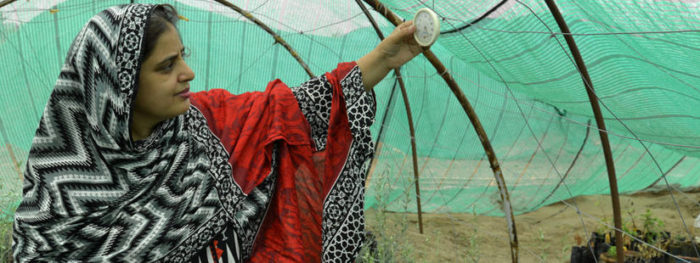When economically empowered, women reinvest in their communities— leading to greater self-reliance, prosperity, and food security.
To support these outcomes, the development community should adopt high-impact initiatives for female agripreneurs.
by Hailey Dougherty for Chemonics International for Agrilinks
Rapid urbanization in developing countries is shifting the demand for agricultural goods. Meanwhile, the digitization of value chains is generating more transparent information on the pricing and movement of goods. These changes within food systems open windows of opportunity for agripreneurship — that is, entrepreneurship in the agriculture sector — both on the farm and beyond the farm gate. But due to restrictive cultural norms, discrimination, and legal barriers, rural women around the world often don’t have equal access to essential services that could otherwise pave their way towards employment and agripreneurship. They encounter greater constraints than their male counterparts in accessing market information, business advisory services, financial assets, and mentors. And, while women make up nearly half of the agricultural workforce in developing countries, they own a mere one-third of small- and medium-sized enterprises in emerging markets and comprise only 15 percent of the world’s agricultural extension agents. When economically empowered, women often reinvest in their families and communities, spurring a ripple effect towards self-reliance, prosperity, and food and nutritional security.
So, how can development practitioners build high-quality agribusiness skills training programs that not only engage more rural women and girls but that link them to real business opportunities and actualize their potential as future agripreneurs? Evidence from Chemonics’ agriculture and food security programming suggests that the development community should adopt high-impact initiatives such as creating platforms for mentorship, nurturing market-demanded skills, and promoting experiential learning.
1. Champion Mentorship
Championing successful female agripreneurs, change makers, and leaders who have broken into non-traditional positions can challenge stereotypes of women’s roles in the agriculture sector and encourage rural women and girls to reimagine their livelihoods. This was precisely the intention of the 2019 Feed the Future Week #HerImpact campaign, in which USAID and the broader development community featured inspiring stories of female leaders, influencers, and agripreneurs who unleashed their full economic potential. But, beyond championing lies the critical ingredient of mentorship. Strong female mentors in agribusiness inspire the next generation of rural agripreneurs by providing ongoing actionable advice — even beyond business ideation and startup. In male-dominated sectors — often the case in the agribusinesses of emerging economies — 65 percent of female entrepreneurs have had a female role model light their path towards success.



